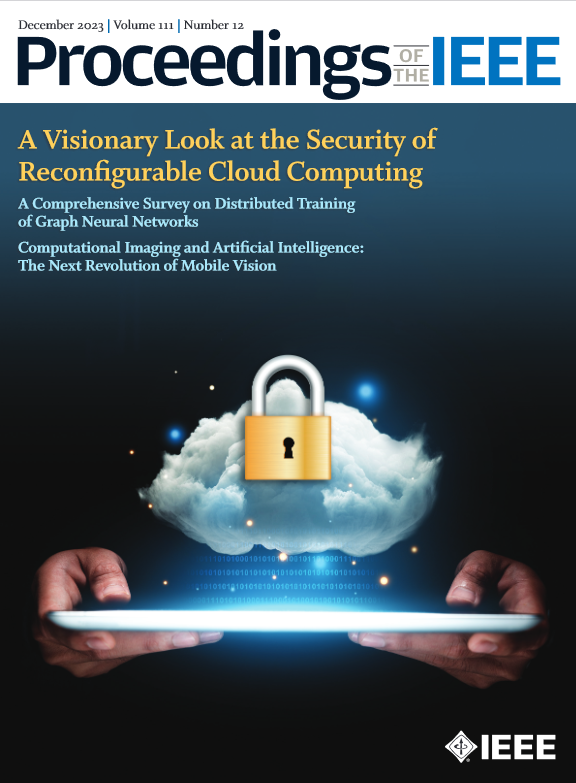Reactive Power Implications of Penetrating Inverter-Based Renewable and Storage Resources in Future Grids Toward Energy Transition—A Review
IF 25.9
1区 计算机科学
Q1 ENGINEERING, ELECTRICAL & ELECTRONIC
引用次数: 0
Abstract
Transitioning to net-zero emission energy systems is currently on the agenda in various countries to tackle climate change, a global challenge that threatens the lives of future generations. To fully decarbonize energy systems, a radical paradigm shift through deep integration of renewable resources supported by storage technologies is envisaged in multisector energy systems, especially in the electric power sector. As a result, inverter-based resources (IBRs), mainly wind, photovoltaics (PVs), and batteries, will dominate the electric power grids. This transition involves phasing out conventional fossil fuel-based plants and decommissioning associated synchronous machines, the grid’s primary reactive power sources. The ongoing removal of these primary reactive power sources introduces critical operational challenges that could compromise the reliability and stability of the grid. The inverters used for integrating IBRs can deliver diverse crucial ancillary services, particularly reactive power support. However, the potential of IBRs to address reactive power requirements in future decarbonized grids still needs to be fully addressed. The existing literature lacks a comprehensive approach to coordinating and harmonizing the efforts of various stakeholders and drivers to leverage the reactive power capability of IBRs. To bridge this gap, this article thoroughly reviews the reactive power implications for future grids with a considerable share of primary IBRs, comprising distributed and large-scale wind, PV and battery storage plants. This article starts with a summary of the concept, measurement methods, and importance of reactive power for voltage control and how it is managed today utilizing conventional sources. The reactive power transition from current to future grids within the context of the greater energy transition is then discussed by shedding light on its diverse aspects. Afterward, the reactive capability curve of each IBR is derived from the equivalent circuits and equations. Various grid codes and integration requirements of IBRs are then analyzed from a reactive power support viewpoint. Also, the concepts related to reactive power and voltage control comprising control extents, modes, and techniques are elaborated. Finally, recommendations are provided to set the stage for leveraging the capabilities of IBRs to address the reactive power requirements of future grids. The presented material sheds light on the pivotal role of reactive power in future grids and provides a roadmap for policymakers, utilities, and grid operators to manage a seamless transition to a decarbonized grid.无功功率穿透基于逆变器的可再生能源和存储资源对未来电网能源转型的影响综述
为应对气候变化这一威胁子孙后代生命的全球性挑战,向净零排放能源系统过渡目前已被列入各国的议程。为了使能源系统完全脱碳,设想在多部门能源系统中,特别是在电力部门,通过存储技术支持的可再生资源的深度整合,实现根本性的范式转变。因此,基于逆变器的资源(ibr),主要是风能、光伏(pv)和电池,将主导电网。这一转变包括逐步淘汰传统的化石燃料发电厂,并淘汰相关的同步发电机(电网的主要无功电源)。这些主要无功电源的移除带来了关键的运营挑战,可能会损害电网的可靠性和稳定性。用于集成ibr的逆变器可以提供各种关键的辅助服务,特别是无功支持。然而,ibr在解决未来脱碳电网无功功率需求方面的潜力仍有待充分挖掘。现有文献缺乏一个全面的方法来协调和协调各种利益相关者和驱动因素的努力,以利用ibr的无功能力。为了弥补这一差距,本文全面回顾了无功功率对未来电网的影响,其中包括分布式和大规模的风能、光伏和电池储能电站。本文首先概述了电压控制中无功功率的概念、测量方法和重要性,以及如何利用传统电源对其进行管理。在更大的能源转换的背景下,从当前到未来电网的无功功率转换,然后通过对其不同方面的阐明来讨论。然后,根据等效电路和方程推导出各IBR的无功能力曲线。然后从无功支持的角度分析了ibr的各种电网规范和集成要求。此外,还阐述了与无功功率和电压控制相关的概念,包括控制范围、模式和技术。最后,提出了建议,为利用ibr的能力来解决未来电网的无功功率需求奠定基础。本文阐述了无功电力在未来电网中的关键作用,并为政策制定者、公用事业公司和电网运营商提供了一个路线图,以实现向脱碳电网的无缝过渡。
本文章由计算机程序翻译,如有差异,请以英文原文为准。
求助全文
约1分钟内获得全文
求助全文
来源期刊

Proceedings of the IEEE
工程技术-工程:电子与电气
CiteScore
46.40
自引率
1.00%
发文量
160
审稿时长
3-8 weeks
期刊介绍:
Proceedings of the IEEE is the leading journal to provide in-depth review, survey, and tutorial coverage of the technical developments in electronics, electrical and computer engineering, and computer science. Consistently ranked as one of the top journals by Impact Factor, Article Influence Score and more, the journal serves as a trusted resource for engineers around the world.
 求助内容:
求助内容: 应助结果提醒方式:
应助结果提醒方式:


